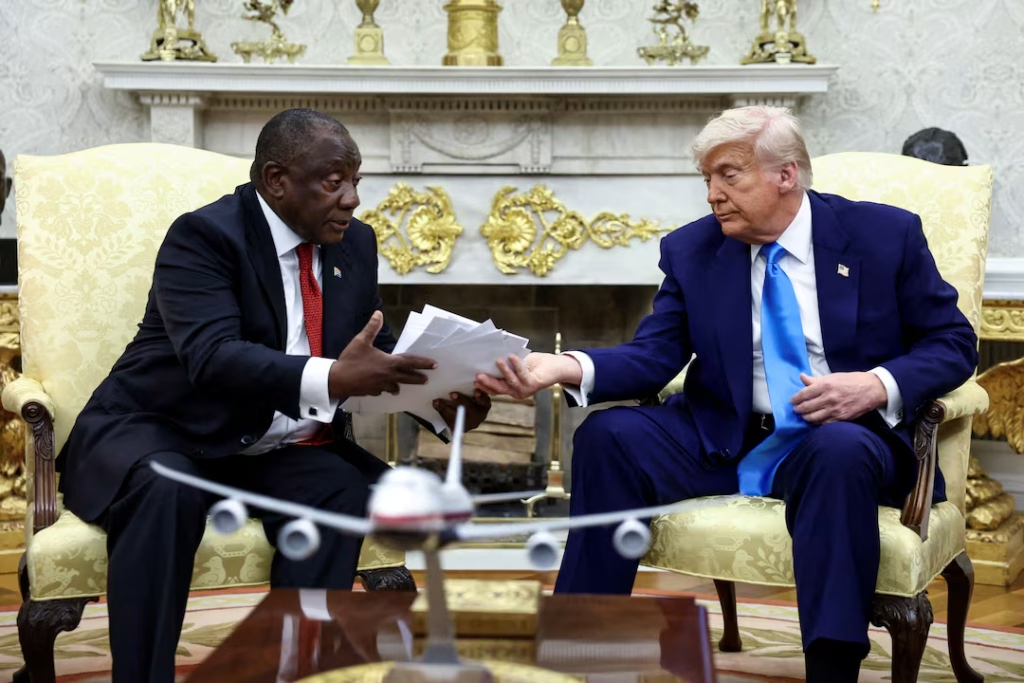A tense and dramatic confrontation unfolded at the White House on Wednesday when U.S. President Donald Trump accused South African President Cyril Ramaphosa of enabling the killings of white farmers and land expropriations — claims widely discredited by official data and analysts.
The meeting, intended to focus on trade and critical minerals, quickly escalated into a 10-minute verbal onslaught. In front of the press pool, Trump slammed a thick stack of printed articles and photographs onto the table, claiming they depicted murdered white South Africans. “You’re letting this happen, Cyril — it’s a disgrace!” he said, alleging that thousands of white farmers had been killed.
Official South African statistics report about 50 farm murders annually amid more than 300 attacks, with no evidence of racial targeting. Most violent crime victims in South Africa are Black, according to the government.
Ramaphosa, seeking to repair diplomatic ties, had begun the Oval Office visit on a cordial note, exchanging pleasantries about golf with Trump. South African golfing legends Ernie Els and Retief Goosen, as well as billionaire Johann Rupert, were part of his delegation. But the tone shifted when Trump played a video and displayed images purporting to show graves of white victims and opposition figures making incendiary statements.
At one point, Trump demanded the arrest of opposition leader Julius Malema, suggesting he was inciting violence. Ramaphosa responded calmly, saying he had not seen the video and would investigate further.
When Ramaphosa acknowledged that South Africa struggles with high crime, Trump cut him off, saying, “The farmers are not Black.” Ramaphosa replied, “These are concerns we are willing to talk to you about,” emphasizing that the overwhelming majority of victims are Black South Africans.
Trump also criticized South Africa’s land reform policies, which allow expropriation without compensation under certain conditions. The law has yet to result in any land seizures, and any such action can be challenged in court.
In recent months, Trump has intensified his criticism of South Africa, including cancelling aid, expelling its ambassador, and allowing Afrikaner asylum applications based on claims of racial discrimination — a move Pretoria has condemned as baseless.
During the meeting, business tycoon Johann Rupert intervened, supporting Ramaphosa by stating that crime affects all races in South Africa. He also called for Elon Musk’s Starlink technology — Musk being present during the meeting — to be deployed in South African police stations to enhance law enforcement capabilities.
Ramaphosa also mentioned South Africa’s lack of technological resources, saying, “The criminality in our country needs quite a lot of technological capability.” Trump quipped that perhaps South Africa should let Elon Musk operate there.
Despite the heated exchange, Ramaphosa remained composed throughout, reiterating South Africa’s commitment to dialogue and dispelling what his government calls “inflammatory and inaccurate” portrayals of the country’s challenges. There has been no official indication of policy shifts following the contentious meeting.



